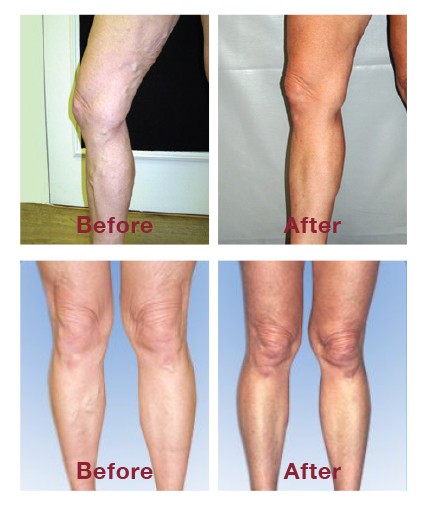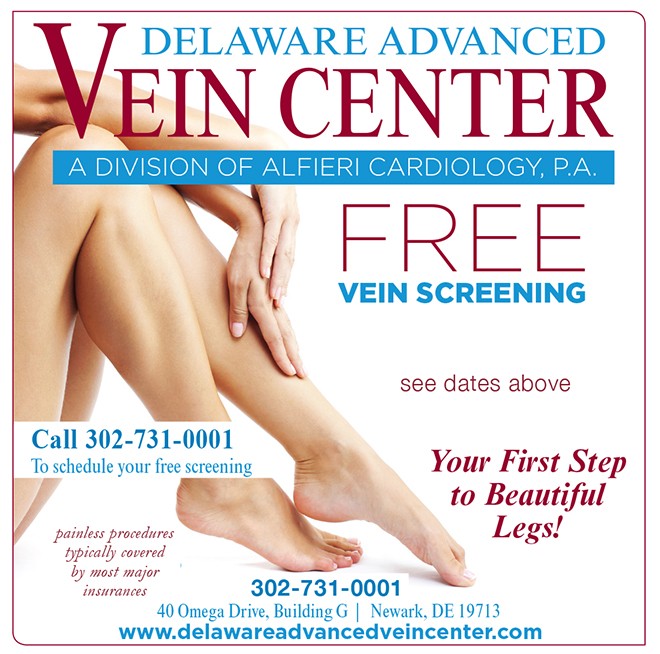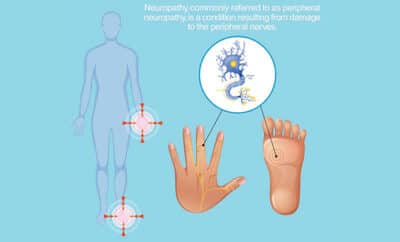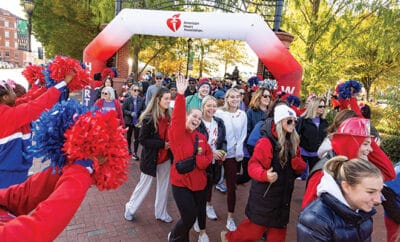Varicose Veins & Treatment Options

By Anthony Alfieri, DO, FACC
Have you ever wondered what varicose veins actually are and how they come about? When once healthy vein walls become weakened over time, the vein grows in size leaving the valves unable to do their job properly. The vein becomes large and swollen, particularly in the legs, and can lead to symptoms such as an itching, swelling, and/or a tired and heavy feeling. In more severe cases, thrombophlebitis can occur. This happens when the blood sits in the large veins because it is not being returned up the leg properly and a clot forms in the superficial veins. Vein disease is progressive and if left untreated, it can lead to chronic swelling, discoloration and venous ulcers.
The first line of defense in properly diagnosing varicose veins is with an ultrasound. The ultrasound will rule out any evidence of thrombus but also look at the superficial veins in detail. The varicose veins are often an issue that is secondary to venous reflux in one of the main superficial veins. Once the problematic vein is identified, a proper treatment plan can be developed. This often involves the closure of any refluxing veins, then focusing on the bulging varicosities that are the result of the severe venous insufficiency.
Treatment of varicose veins may be different for each patient. Depending on the size and location of the individual’s vein, the doctor will determine which option may be the best fit. The two main treatment options that we offer differ in many aspects. Ultrasound Guided Sclerotherapy is a minimally invasive procedure that leaves a portion of the work for your body to take care of on its own. Ambulatory Phlebectomy is a more involved procedure, however, the vein is permanently removed at the time of your visit.
Ultrasound Guided Sclerotherapy is one treatment option which involves the injection of a medication directly into the varicose vein. This medicine will cause the blood within this vessel only to thrombose or clot off. The body’s instinct is to then fight this clot, break it up and reabsorb it over time. The medication used is referred to as a sclerosant and different concentrations are used depending on the vein size.
Another treatment option is an Ambulatory Phlebectomy. This is a procedure that involves multiple small incisions through which the varicose vein is then removed in sections. This procedure is minimally invasive and can be performed in the comfort of our office. We use local anesthesia and offer the option of nitrous oxide (laughing gas) for ambulatory phlebectomies which helps to relax the patient for a comfortable experience.
We offer free verbal vein screenings each month to allow patients to express their concerns about their veins. This gives patients the opportunity to ask questions which helps us to better navigate you through the process of properly treating your venous insufficiency. Come to one of our FREE vein screenings or call (302) 731-0001 to schedule a free consult today.

Anthony Alfieri, DO, FACC is a board certified interventional cardiologist who has been practicing in the New Castle County area for over twenty-five years. In that time he has seen and treated many forms of cardiovascular disease, one of which being the progressive and often painful and debilitating venous insufficiency, commonly described as varicose veins. Over the years, Dr. Alfieri came to realize that this problem was frequently underappreciated, misdiagnosed, and undertreated. It was this extensive experience and intense compassion for his patients that drove his desire to provide an effective and permanent treatment and led him to found Delaware Advanced Vein Center. With over twenty-five years of experience as an interventionalist, Dr. Alfieri is uniquely qualified to perform a multitude of vascular procedures with minimal discomfort and maximum, lasting results.
FREE VEIN SCREENING
January 17th
February 21st
March 14st





